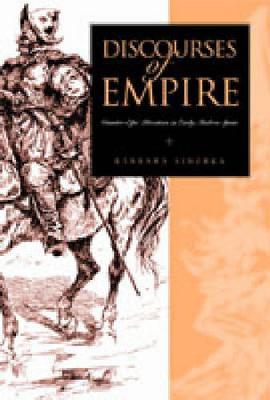Overview
The counter-epic is a literary style that developed in reaction to imperialist epic conventions as a means of scrutinizing the consequences of foreign conquest of dominated peoples. It also functioned as a transitional literary form, a bridge between epic narratives of military heroics and novelistic narratives of commercial success. In Discourses of Empire, Barbara Simerka examines the representation of militant Christian imperialism in early modern Spanish literature by focusing on this counter-epic discourse. Simerka is drawn to literary texts that questioned or challenged the imperial project of the Hapsburg monarchy in northern Europe and the New World. She notes the variety of critical ideas across the spectrum of diplomatic, juridical, economic, theological, philosophical, and literary writings, and she argues that the presence of such competing discourses challenges the frequent assumption of a univocal, hegemonic culture in Spain during the imperial period. Simerka is especially alert to the ways in which different discourses—hegemonic, residual, emergent—coexist and compete simultaneously in the mediation of power. Discourses of Empire offers fresh insight into the political and intellectual conditions of Hapsburg imperialism, illuminating some rarely examined literary genres, such as burlesque epics, history plays, and indiano drama. Indeed, a special feature of the book is a chapter devoted specifically to indiano literature. Simerka's thorough working knowledge of contemporary literary theory and her inclusion of American, English, and French texts as points of comparison contribute much to current studies of Spanish Golden Age literature.
Full Product Details
Author: Barbara Simerka (Queens College / CUNY)
Publisher: Pennsylvania State University Press
Imprint: Pennsylvania State University Press
Dimensions:
Width: 15.20cm
, Height: 1.90cm
, Length: 22.90cm
Weight: 0.513kg
ISBN: 9780271022826
ISBN 10: 0271022825
Pages: 232
Publication Date: 25 June 2003
Audience:
General/trade
,
Professional and scholarly
,
General
,
Postgraduate, Research & Scholarly
Format: Hardback
Publisher's Status: Active
Availability: Out of stock

The supplier is temporarily out of stock of this item. It will be ordered for you on backorder and shipped when it becomes available.
Reviews
Focusing mainly on the comedia, reviews counter-epic literary representations as discursive mediations questioning dominant ideologies, ways in which counter-epic texts contest imperialist practice and provide insights into the heterogeneity of early modern society. -Carmen Peraita, Year's Work in Modern Language Studies One must applaud the ambitious and far-reaching goals of the study. It is highly suggestive and engaging, with its own rather baroque discourse. -E.H. Friedman, Choice
Focusing mainly on the comedia, reviews counter-epic literary representations as discursive mediations questioning dominant ideologies, ways in which counter-epic texts contest imperialist practice and provide insights into the heterogeneity of early modern society. --Carmen Peraita, Year's Work in Modern Language Studies
One must applaud the ambitious and far-reaching goals of the study. It is highly suggestive and engaging, with its own rather baroque discourse. --E.H. Friedman, Choice Focusing mainly on the comedia, reviews counter-epic literary representations as discursive mediations questioning dominant ideologies, ways in which counter-epic texts contest imperialist practice and provide insights into the heterogeneity of early modern society. --Carmen Peraita, Year's Work in Modern Language Studies
Focusing mainly on the comedia, reviews counter-epic literary representations as discursive mediations questioning dominant ideologies, ways in which counter-epic texts contest imperialist practice and provide insights into the heterogeneity of early modern society. Carmen Peraita, Year s Work in Modern Language Studies
Author Information
Barbara Simerka is Assistant Professor of Hispanic Studies at Queens College, CUNY. She is co-editor, with Christopher B. Weimer, of Echoes and Inscriptions: Comparative Approaches to Early Modern Spanish Literatures (2000) and editor of El arte nuevo de estudiar comedias: Literary Theory and Golden Age Spanish Drama (1996).



